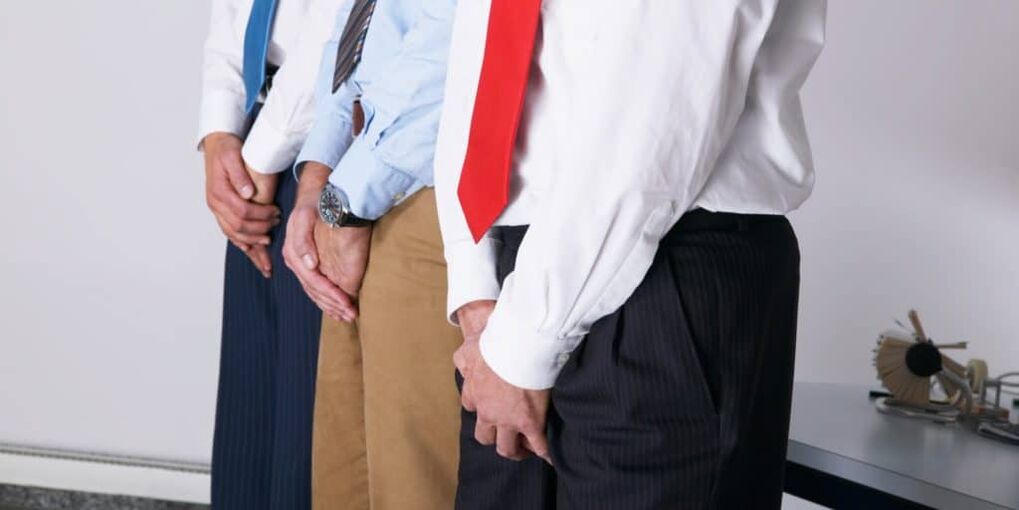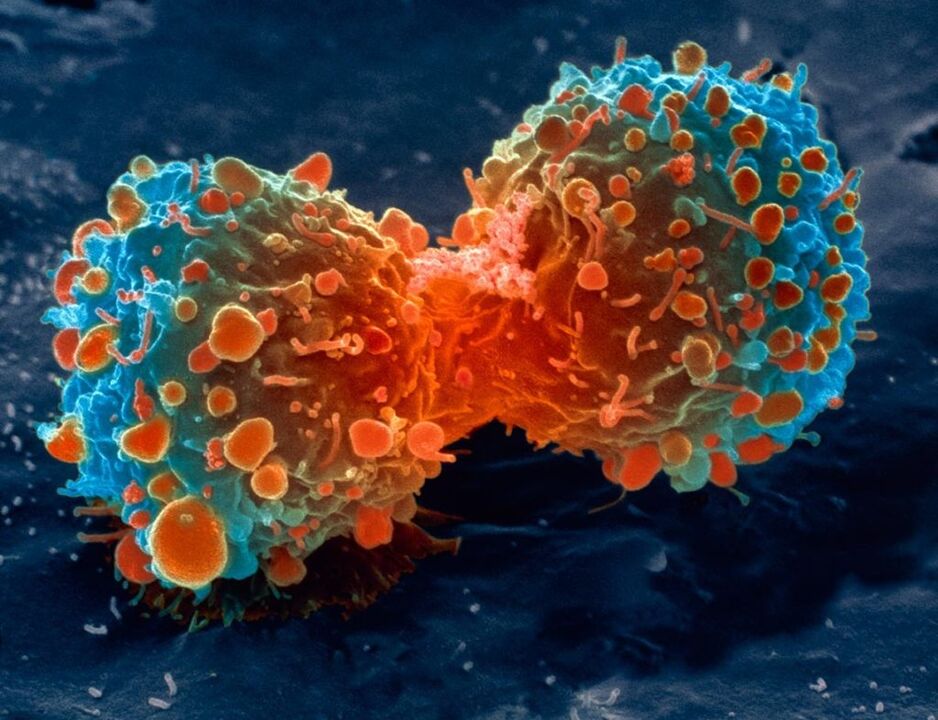There are different stages of prostatitis. They differ from each other in clinical symptoms and features of the course. The most effective is the treatment of the initial stage of the development of inflammation of the prostate gland. At this stage, the disease does not have time to greatly affect the functioning of the genitourinary system. The later a man with prostatitis turns to a doctor for help, the less his chances of a full recovery.
What is prostatitis
Prostatitis is an inflammatory process that has appeared in the prostate gland. More than half of the older male population is personally familiar with this disease. Doctors distinguish several forms of the disease, each of which proceeds in its own way. When making a diagnosis, urologists specify the type of prostatitis found in a patient. Inflammation can be bacterial or non-bacterial. Both pathologies negatively affect the functioning of the gland and neighboring organs.
The pathological process has 2 types of flow:
- Spicy;
- Chronic.
The initial symptoms of acute prostatitis appear from the first days of the disease. Their severity increases if a man does not try to cope with inflammation. The chronic course is characterized by the absence of obvious symptoms of malaise. Therefore, this form of prostatitis is usually detected during a routine examination by a urologist.

Acute prostatitis, even in the initial stage, gives vivid symptoms, while chronic prostatitis does not manifest itself for a long time.
Stages of chronic disease
Chronic prostatitis is divided into several stages, which follow each other if a man does not try to fight the disease. It can be latent for several years. In this case, the pathology is periodically exacerbated. Remission and relapse of the disease gradually replace each other.
It depends only on the actions of the patient how long he will treat the disease, to what stage it will be able to reach and whether he will be able to fully recover.
1 stage
The initial stage of the prostate is considered the safest for health. That is why doctors recommend starting treatment at this stage. But the difficulty lies in the fact that at the very beginning the disease does not cause much discomfort. A man does not even always know that he is sick. If for a number of reasons the patient could not overcome the pathological process in the prostate gland, he will move to a more difficult stage. And so it will continue until the causative agent of the infection is stopped by therapy.
Prostatitis of the 1st degree is characterized by such symptoms that will be mild:
- Body temperature rises to 38 degrees. After some time, it can increase to the mark of 40 degrees;
- Severe pain is felt in the area of the hip joints;
- There is discomfort during bowel movements;
- Member becomes more sluggish;
- In the process of urination, you can notice mucus that does not have a color;
- Pain appears during urination;
- The urethra becomes more narrowed, so you have to strain to empty the bladder;
- At night, frequent urges to the toilet begin to disturb;
- Sexual intercourse becomes shorter.
All these signs are a good reason to visit a specialist. They will disturb a man up to 3 years. It is during this time that the course of the first stage of the disease is usually observed.
Symptoms of inflammation of the prostate will come and go, as at this stage the disease manifests itself in waves. It will seem to a man that the disease has receded, but after a while she again betrays herself.
Very often, patients do not finish the initial stage of inflammation in the prostate gland. Because of this, the disease becomes chronic. It is very difficult to deal with this form of pathology. Treatment will take a long time and will require large sums of money to be invested. At the same time, there is no guarantee that the disease will recede upon completion of the therapeutic course.
The urologist can identify the initial stage of prostatitis in a patient if he undergoes a series of diagnostic procedures. The disease is detected through such studies:
- Palpation of the rectum;
- Collection of secretions and sperm;
- General analysis of urine and blood;
- Sperm analysis;
- Ultrasound of the prostate.
Analysis of the research results will allow the specialist to determine the disease and its cause. If the prostatitis turns out to be infectious, then the man will be offered to drink antibiotics and other drugs that help restore the affected prostate tissue and normalize its performance. A non-infectious form of inflammation also needs drug therapy. Such treatment will be based on immunomodulatory drugs, dietary supplements and rectal suppositories with anti-inflammatory action.
If the initial stage of the disease proceeds in a non-aggravated form, then the patient is additionally prescribed physiotherapy along with a diet.

At an early stage, inflammation of the prostate responds well to treatment.
2 stage
Prostatitis of the 2nd degree is accompanied by a temporary weakening of symptoms. Many men perceive this condition as recovery. They postpone visits to the doctor or stop paying due attention to therapy. But a decrease in the inflammatory process with such a diagnosis is a bad sign. While the first stage of the disease was going on, there was an increase in the size of the prostate due to the active division of its cells. As a result, scars form on the walls. Ruptures of blood vessels lead to disruption of the blood supply to the prostate gland.
The second stage of prostatitis is usually accompanied by such signs:
- Violation of biological rhythms;
- Nervousness;
- Pain when urinating;
- Failure of the heart;
- Exacerbation of sciatica;
- The disappearance of orgasm;
- Lack of sexual desire.
At this stage of prostatitis in men, it is difficult to correctly determine the specific localization of the pain syndrome. Initially, pain is felt at the location of the prostate. After it spreads to all areas of the small pelvis.
Patients with stage 2 prostatitis are recommended to take immunostimulating medications and attend physiotherapy procedures. So that the situation does not become more complicated, they need to avoid hypothermia, give up bad habits and normalize nutrition.

It is very important to have a healthy lifestyle
3 stage
The third stage of the development of inflammation in the prostate gland brings the most problems. In this case, a man is diagnosed with a chronic form of prostatitis. At this stage, there is a serious change in the tissues of the prostate. They begin to die off quickly. The scars formed in the past stages strongly compress the bladder. This provokes the development of urinary retention, which is an extremely dangerous complication.
Prostatitis at 3 degrees of development leads to the appearance of pathological changes in the kidneys and bladder. The danger lies in the fact that they are irreversible. At this stage, men often complain of sciatica.
The last stage of the development of the disease has the following symptoms:
- Frequent urge to urinate;
- Severe pain during urination;
- Weak urine flow;
- Cutting in the region of the kidneys;
- Lack of sensation of complete emptying of the bladder after going to the toilet.
The last stage of chronic prostatitis is considered the most dangerous. At this stage, the dying cells are replaced by connective tissue. This change leads to a decrease in the size of the prostate gland and narrowing of the urinary tract. Due to the fact that the system does not function properly, a man develops cystic formations. He also develops impotence.
Since in the last stages of the disease its symptoms are very pronounced, the life of the patient is greatly complicated. Constant pain does not give him rest day or night. Quite often, for the first time, men turn to a urologist precisely because of such obvious symptoms of prostatitis. But, since irreversible processes have occurred in the gland by this moment, doctors do not guarantee getting rid of the pathology even if the patient fulfills all their requirements. It is difficult for them to predict how inflammation will behave at a given stage of development.
If the case is severe, and antibiotics do not bring significant relief, then the patient is referred for surgery to partially or completely remove the prostate gland.

At stage 3, pain becomes severe, and changes in organs become irreversible.
Stages of acute illness
It is with acute inflammation in the glandular organ that prostatitis begins. It gradually escalates. The prostate gland is affected by an infection that develops safely in it with a weakened immune system. Chronic prostatitis is observed in those who could not cope with the acute form of pathology. In this case, the man will not feel the special symptoms of the disease until it is in the acute stage.
Inflammation of the prostate, which is caused by an infectious agent, manifests itself from the first days of the disease. Therefore, this form of pathology is diagnosed earlier than chronic. Acute prostatitis is characterized by slightly different stages of development. Doctors distinguish 4 degrees of the disease, which follow each other.
catarrhal stage
At this stage, the inflammatory process in the prostate begins. It spreads in the ductal tissues of the glandular lobules. There is swelling of the prostate, which continues to progress. At this stage, the man does not have purulent discharge, which could indicate an infection in the gland. He will be disturbed by other symptoms:
- Frequent urge to go to the toilet;
- Painful urination;
- General weakness in the body;
- Variable psycho-emotional state;
- apathetic mood;
- Irritability.
Another distinguishing feature of acute prostatitis at the 1st stage of development is an enlargement of the prostate gland. Although this symptom is also characteristic of the chronic course of pathology. The doctor will be able to notice this feature during the palpation of the problem area. Special analyzes allow to confirm the fears of a specialist. He must necessarily refer the patient to the delivery of prostatic secretion to study its composition. With prostatitis, an increased number of leukocytes will be found in the fluid. Also in the sample, the physician will detect impurities of pus and mucus.
Treatment of the catarrhal stage of acute prostatitis consists of taking a group of medications that suppress inflammation and reduce the severity of the main symptoms of the disease.
Massage with such a course of pathology is strictly prohibited, like many other similar physiotherapeutic procedures.
On average, the treatment of the initial stage of acute inflammation of the prostate gland takes about 2 weeks. During this time, the patient completely gets rid of the disease. The positive outcome of therapy is due to the fact that it was started before the moment when the pathology had not yet managed to lead to the development of irreversible processes in the organs of the genitourinary system.
Follicular stage
With the development of this phase of prostatitis, swelling spreads to the follicles and the excretory channels of the prostate. Its structures begin to compress neighboring tissues, which causes serious suppuration. Symptoms of the disease intensify and become more pronounced and noticeable. In this condition, men complain of the following signs of malaise:
- Body temperature rises to 38 degrees and does not fall;
- apathetic mood;
- The appearance of pain in the groin area;
- Spread of pain to the genitals, anal area and hip joint;
- painful urination;
- Pain in the head of the penis;
- Defecation becomes more difficult;
- The excretion of a minimum amount of urine.
When probing the problem area, you can detect an asymmetric increase in prostate tissue. While examining the results of a urinalysis, the doctor will detect the presence of an excessive amount of pus and white blood cells in the sample.
It is very important to start urgent treatment of the follicular stage of acute prostatitis, otherwise a malignant process may develop in the structures of the glandular organ.

If therapy is ignored, there is a risk of developing cancer
Parenchymal stage
Prostate tissues are subject to constant damage. Because of this, a large number of small pustules form in them. The urinary tract is further compressed. As a result, there is an acute urinary retention. Other symptoms of the parenchymal stage are the following conditions:
- Painful defecation;
- An increase in body temperature to 39 degrees or more;
- Constant feeling of intense thirst;
- Loss of appetite;
- severe weakness;
- Chronic fatigue;
- Difficulty urinating;
- Severe pain in the pelvis, anus and lower back;
- Flatulence and constipation.
Impurities of abnormal mucus begin to appear in the feces, as inflammation affects the intestines. The gland becomes quite large, and its contours are blurred.
Stage of abscess formation
This stage of acute prostatitis is accompanied by a number of painful symptoms that prevent a man from leading a full life. They are more pronounced than at the initial stage of the development of the inflammatory process. At this stage, small pustules merge into a whole formation. Purulent masses quickly accumulate inside it. When it gets too big, it bursts. As a result, the accumulated pus comes out through the urethra. At the stage of abscessing, the patient is tormented by the following symptoms:
- severe malaise;
- Increase in body temperature up to 40 degrees;
- Passivity to any actions;
- Intense pain in the anus and genitals;
- Difficulty in defecation and urination.
If a man in this condition is not given adequate treatment, he may die. It is very important to eliminate the abscess in order for the patient to feel better. Only then will the main signs of the disease begin to subside.
Complications
The sooner the treatment of prostatitis is started, the less harm the inflammatory process will bring to the body. That is why it is best to deal with the disease at an early stage. But not all men adhere to this recommendation, as many hope that the ailment will go away on its own. Because of this, the disease progresses and leads to the development of unpleasant complications. Neglecting the help of a specialist, a person faces the following consequences of untreated prostatitis:
- The appearance of various inflammatory processes in the organs of the genitourinary system;
- Decreased sex drive;
- Psychological disorders;
- Infertility;
- Impotence.
It is not uncommon for men who have had prostatitis to have a normal erection. It is because of this that the sexual activity of the patient is significantly reduced. In some cases, the absence of ejaculation is considered as a complication. A man's penis may fall sharply. If such deviations are found, it is required to visit a specialist in order to find out the nature of the violation and find ways to get rid of it.
We must not forget that the inflammatory process can actively spread to neighboring tissues and organs. That is why, against the background of prostatitis, men additionally develop cystitis and urethritis. These diseases lead to a violation of the outflow of urine. The appearance of chronic incontinence is not excluded.
Impotence is perceived by men as one of the most severe complications of acute or chronic prostatitis. With such a deviation, the ability to excite disappears. This is due to inflammation, which interferes with the process of tissue nutrition. Edema does not allow the cavernous bodies to fully fill with blood. Medicine has learned to treat this complication with long-term drug therapy. However, not all patients who have completed such a course are satisfied with the result.
It is prostatitis that is called the main cause of the development of infertility of the 1st degree. In this case, a variant of the disease is considered, in which the composition of the seminal fluid changes. The secret changes its acidity and viscosity level. All these deviations are detected during the study of the sperm sample, which was submitted for analysis.
With the problem of infertility, men should contact an andrologist. It will help you choose the best treatment.
If prostatitis is severe, then it will lead to the appearance of infertility of the 2nd degree. This condition is not amenable to therapeutic treatment.
The psycho-emotional mood of a man suffers greatly due to inflammation of the prostate. Frequent failures in the intimate sphere make him worry. Against this background, depressions appear, which further worsen the general condition of the patient.
More than 30% of patients who have been diagnosed with prostatitis face psycho-emotional experiences. A psychologist helps them restore male libido, which was reduced due to stress.

Impotence and infertility are common complications of the disease
Remission of chronic prostatitis
If the treatment of prostatitis was started, the patient can achieve its remission. This is the name of the condition in which there is a significant weakening of the symptoms of the disease or their complete disappearance. Prostatitis in remission is fixed in most patients who have completed a full treatment course. This period varies from person to person. If a man does not adhere to the recommendations of a doctor, then after a while there will be an exacerbation of inflammation of the prostate. And then the patient will have to be treated again.
Kinds
Remission with prostatitis can be complete and incomplete. In the first case, after a full therapy, the man ceases to be disturbed by absolutely all the symptoms of the pathology. He forgets about them for a long period. Incomplete remission usually lasts no more than 3 months. During this time, the patient may complain of minor symptoms that characterize prostatitis. For example, many continue to experience painful urination and discomfort in the pelvic area.
Duration
Even experienced doctors sometimes find it very difficult to predict how long the remission will last for a particular person who has been treated for prostatitis. This indicator is individual. The duration of this period directly depends on a number of factors:
- The causative agent of the disease;
- General condition of the body;
- The quality of treatment;
- The severity of the disease;
- Disease stage.
It also takes into account how conscientiously the patient follows the recommendations of the attending physician, which relate to the prevention of recurrence of prostatitis.
If a man fulfills all the requirements of a specialist and carefully takes care of his own health, then his remission can last several decades. Sometimes the disease completely recedes.
Forecast
If a patient who had to undergo treatment for chronic prostatitis begins to lead a correct lifestyle, will take control tests and regularly visit his doctor, as well as take drugs to prevent the recurrence of inflammation of the prostate, then he will have a favorable recovery prognosis. In this case, the disease may never bother a person at all again.
If a man still fell ill with prostatitis, he should immediately begin therapy. For this, you need to contact a specialist. A full examination of the genitourinary system will help the urologist choose the appropriate treatment that will stop the disease and eliminate the complications that have arisen.






























